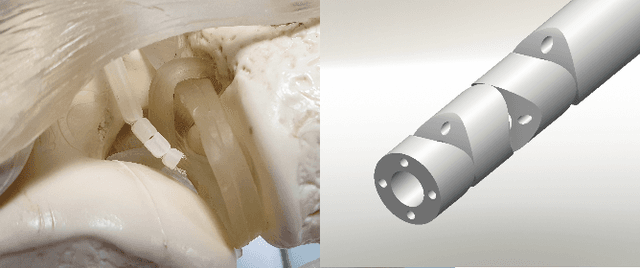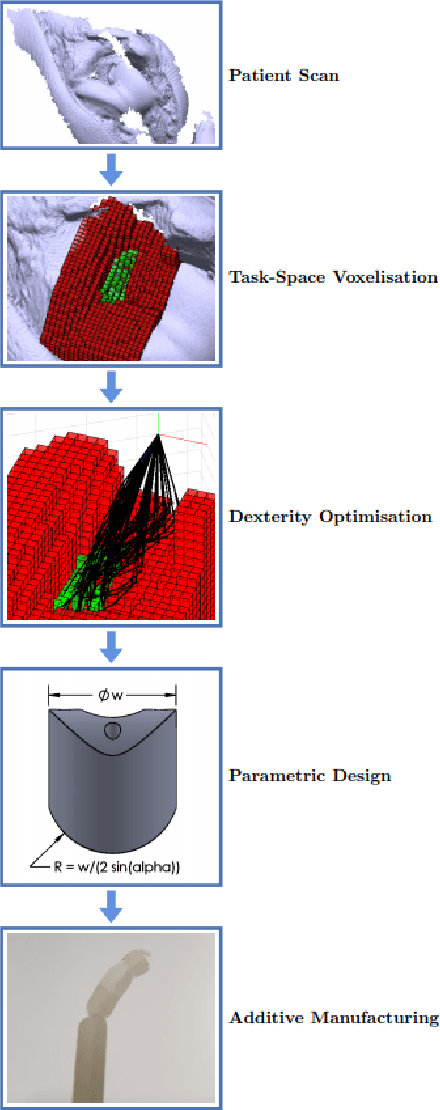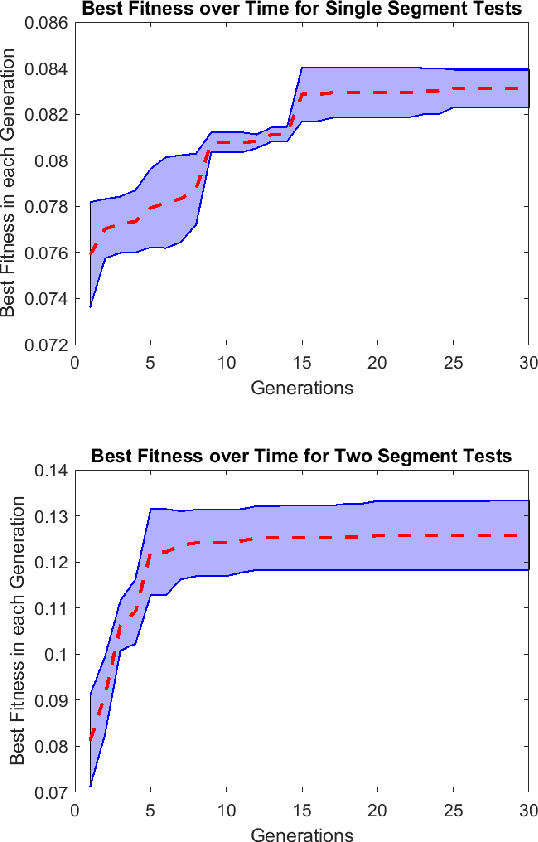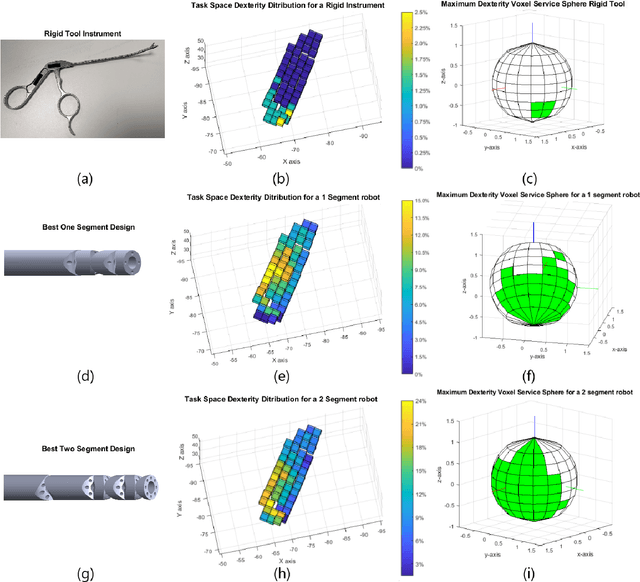Optimal Dexterity for a Snake-like Surgical Manipulator using Patient-specific Task-space Constraints in a Computational Design Algorithm
Paper and Code
Mar 06, 2019



Tendon-driven snake-like arms have been used to create highly dexterous continuum robots so that they can bend around anatomical obstacles to access clinical targets. In this paper, we propose a design algorithm for developing patient-specific surgical continuum manipulators optimized for oriental dexterity constrained by task-space obstacles. The algorithm uses a sampling-based approach to finding the dexterity distribution in the workspace discretized by voxels. The oriental dexterity measured in the region of interest in the task-space formed a fitness function to be optimized through differential evolution. This was implemented in the design of a tendon-driven manipulator for knee arthroscopy. The results showed a feasible design that achieves significantly better dexterity than a rigid tool. This highlights the potential of the proposed method to be used in the process of designing dexterous surgical manipulators in the field.
 Add to Chrome
Add to Chrome Add to Firefox
Add to Firefox Add to Edge
Add to Edge